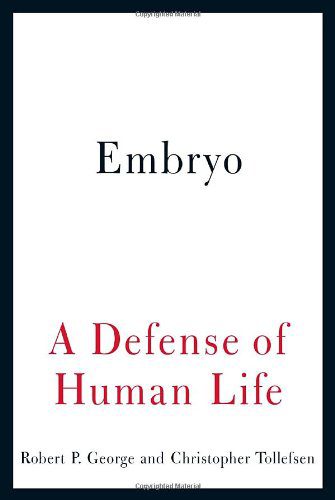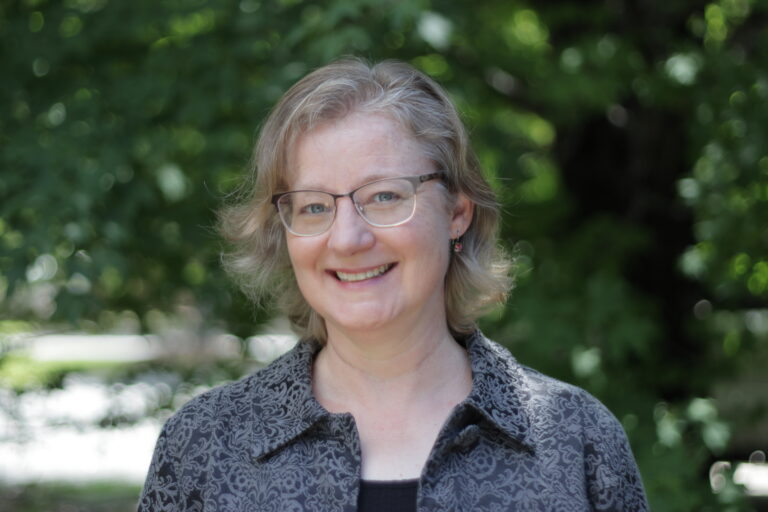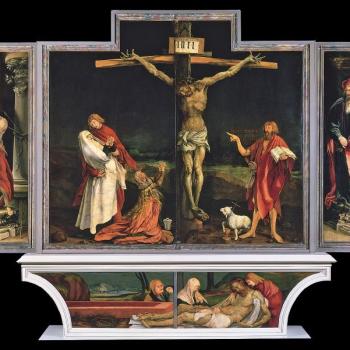What does the Catholic Church have to say about the recent Alabama Supreme Court ruling on embryos and wrongful death of minors lawsuits? Today I want to run through several aspects of the case that touch on the Catholic faith, from legal questions to very personal family planning decisions.
Every aspect of this case is highly emotionally charged, and my goal here is to sort out truth from hyperbole. You may not be comfortable with the Church’s stance on a given aspect of the case (even if you’re Catholic), but the only way to know where you agree and disagree is to start by understanding correctly what the Church actually teaches.
What are the key aspects of this ruling?
The two cases being considered involve three families whose frozen embryos were destroyed due to negligence by their IVF clinic. The parents have attempted to get compensation for their loss under the Alabama Wrongful Death of a Minor Act.
Click here for the link to the full text of the decision, which is fairly readable. Here’s a summary of Justice Mitchell’s key points:
- The Supreme Court of Alabama can only rule on questions or concepts that it has been specifically asked to treat.
- The Supreme Court is limited in its decisions to interpreting what the law of the State of Alabama actually is, according to the plain meaning of the legislative texts.
- Even if the justices themselves might prefer the law to say something other than what it does, they can’t create interpretations to conform to their wishes; it’s the job of the legislature to reform the law.
- The plain meaning of Alabama law as currently written includes stored embryos in the definition of “minor children” for the purposes of the specific civil law statute in question in this pair of cases.
This last point is important, because the decision specifically explores the differences between civil and criminal law, and explains why it’s often (rightly) possible to get compensation for damages in a civil case even if the situation doesn’t rise to the level of bringing about a conviction for related criminal charges.
This makes sense! There are many situations where we might accidentally or carelessly bring about some harm that in justice we should try to make amends and restore our neighbor as much as possible, but in which a criminal charge would be going too far — it would be an injustice to send someone to jail (or worse) given the circumstances and/or level of evidence.
This distinction is very important in wading through reactions. This ruling treats civil law, so anyone saying that “IVF has been criminalized!” is just not being honest. This ruling does say that the law as written allows parents of frozen embryos to sue for civil compensation under the Alabama Wrongful Death of a Minor Act.
Who is affected by this ruling?
This ruling concerns Alabama state law. Other states may have similar laws but which either explicitly carve out exceptions for IVF, or which create exceptions indirectly.
And, narrowing it down further, what this ruling did was send the case back down to a lower court for trial. Justice Mitchell’s opinion laid out multiple aspects of the case that the Supreme Court was unable to rule on because it was not asked by either party to do so. Thus while the Alabama Supreme Court ruled that the Wrongful Death of a Minor Act could apply in this case, it did not make any decision about whether the IVF clinic actually owed damages.
Justice Mitchell’s decisions pointed out one very important aspect of the case that, in the new trial, may have a strong bearing on whether new precedents will be set concerning civil liability for IVF clinics:
During oral argument in these cases, the defendants suggested that the plaintiffs may be either contractually or equitably barred from pursuing wrongful-death claims.
In particular, the defendants pointed out that all the plaintiffs signed contracts with the Center in which their embryonic children were, in many respects, treated as nonhuman property: the Fondes elected in their contract to automatically “destroy” any embryos that had remained frozen longer than five years; the LePages chose to donate similar embryos to medical researchers whose projects would “result in the destruction of the embryos”; and the Aysennes agreed to allow any “abnormal embryos” created through IVF to be experimented on for “research” purposes and then “discarded.”
The defendants contended at oral argument that these provisions are fundamentally incompatible with the plaintiffs’ wrongful-death claims. . . . The trial court remains free to consider these and any other outstanding issues on remand.
In what ways is this ruling “Catholic”?
Here are two aspects of Catholic teaching that are consistent with this ruling:
Subsidiarity. In sticking strictly within the bounds of what the state Supreme Court has the right to decide, this ruling respects the principle of not overreaching in authority.
Dignity of human life from conception. As it happens (whether the judges agree with the law or not — their job isn’t to approve the law but to rule according to the law as written), Alabama state law is in many ways in accord with Catholic teaching on the reality that human life is sacred, that our lives begin at conception, and that our worth as a person isn’t determined by our age, ability, or usefulness.
–> To better understand the philosophical underpinnings of this belief, whether from a religious or secular point of view, the book you want is Embryo: A Defense of Human Life by Robert P. George and Christopher Tollefsen.
All that said, there are details of this case that bring to light some areas where Catholic teaching is quite distinctive. Let’s look at that next.
What is the Catholic position on embryonic human life?
The Catholic position is rooted in biological fact: The defining moment when a human being comes into existence is at conception. That would be fertilization of the ovum (not a human being) by the sperm cell (also not a human being).
The Church takes an interest in this scientific question because the implications are so far-reaching. Unlike a utilitarian philosophy, which judges the worth of a person based on his or her usefulness, Catholicism holds that all human beings have equal rights and dignity.
Thus, for example, genetically screening embryos to select a child who doesn’t have an undesired trait, and in the process killing those who don’t meet spec, is morally abhorrent.
This position is in no way unique to Catholicism — many religions, as well as many non-religious people — agree that we shouldn’t kill people just because they have a particular illness or disability.
Likewise, it is absolutely unacceptable to participate in any way in discarding frozen embryos just because they are no longer wanted, nor to use stored embryos for scientific research or technological developments that knowingly, intentionally involve killing the embryo.
–> In contrast, we could imagine a scenario where an embryo from an ectopic pregnancy, which is certain to die if it remains implanted in the mother, might morally be transferred to an experimental artificial womb, if the hope is that the child will survive — perhaps to be experimentally re-implanted into the mother’s uterus. Even though there’s high likelihood the procedure would not succeed, the intention is not to kill the child; it is an attempt, however long the odds, to save the child’s life.
And remember that in all cases, it is morally acceptable to remove the embryo or fetus from the mother’s body if indeed necessary to save the mother’s life. We can’t actively kill the baby as in abortion, but surgical or vaginal delivery of the intact child is morally acceptable, even if the baby is far too young (such as in ectopic pregnancy) to survive outside the womb.
Is IVF okay as long as no embryos are destroyed?
This is a completely different question, and one on which Catholicism has far less company. Many Christians (and others) who recognize the embryo’s inherent dignity as a human being do, nonetheless, allow IVF as long as a sincere attempt is made to implant and bring to term all embryos conceived in this way.
Here’s the Catholic position on IVF in a nutshell:
Most important: Every child conceived by IVF is a gift of God, precious and equal in dignity to all other humans.
More difficult to understand: Nonetheless, the sexual act itself has a sacredness that needs to be respected. Conception should occur within an act of intercourse between faithfully, lovingly married husband and wife.
This second point is a hard teaching. We can point to many cases where IVF is attempted by loving, faithfully married husband and wife who are only trying to solve their fertility problem.
These cases are fundamentally different from surrogacy or donor cases where the right of the child to know and be reared by its own parents is intentionally denied by design, and which in some cases even amount to full-on trafficking. We need to acknowledge that.
We need to recognize that not every instance of IVF has the same level of moral problems.
Nonetheless, Catholicism does teach that couples should not use IVF.
We should also recognize that even though in many cases couples will be able to conceive by seeking alternate forms of fertility treatment, that won’t always be true.
Isn’t the strict rule against IVF counter to the pro-life ethic?
To be pro-life is to respect the dignity of all human beings. Often (not always) our respect for the sacredness of the gift of human life leads married couples to have another child, even when doing so involves a certain amount of sacrifice or hardship.
(And there is no denying that IVF involves sacrifice and hardship!)
Likewise, respect for human life means that when a child is conceived in a way that isn’t ideal, such as an out-of-wedlock pregnancy, or even in a way that is overwhelmingly and entirely evil, such as rape, we nonetheless treasure the child. The child might be the only good thing in the whole horrible situation, but the child is good.
We seek to help the mother through the serious hardships her pregnancy involves, and we seek to support her in whatever choice she makes about whether to rear the child herself or to seek a good adoptive family for her child.
When appropriate (such as an ordinary out-of-wedlock pregnancy), we seek to help the father to also foster a right relationship with his child. The best way to do that will depend on the unique circumstances of the situation.
All that said, being pro-life is not about maximizing human population via any means available. For couples suffering from infertility, the pro-life choices are to:
- Help them conceive using morally acceptable means if possible. If that is not possible then to . . .
- Provide support and accompaniment as they find other ways to live out their God-given vocation, whether that be through adoption, fostering, or some completely different ministry.
What if a Catholic has used IVF anyway?
Well, that’s in the past. You can’t change the past.
Furthermore, even though few people can understand the pain of infertility, any honest Catholic will admit that frankly we’ve been tempted by far less, and have frequently fallen short of the mark.
That doesn’t mean IVF is no big deal. What it means is that you move on. Your past makes its mark on your life, but it doesn’t define who you are now, nor who you will become.
If you knew it was wrong when you did it? Take it to Confession. You chose to do something you knew not to do, and you’re sorry, and you want to live differently going forward. Receive God’s forgiveness and healing.
If you didn’t even know it was wrong when you did it? Then you didn’t know. In order to be culpable of a sin you have to know it’s a sin! Now you do know, and your life will be different as a result.
If you aren’t clear in your mind about where you were, mentally, at the time? Just bring it up in Confession. God knows your heart, and He is ready to embrace you, and love you, and welcome you into a relationship of peace and joy.
God bless.



















